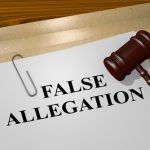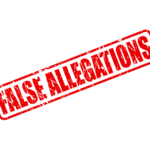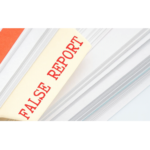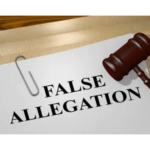Courts Must Consider Family Violence When Making Financial and Property Orders
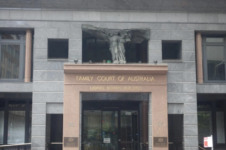
The federal parliament passed the Family Law Amendment Act 2024 on 10 December 2024, which amends the Family Law Act 1975 in a several ways, including the way in which financial and property matters are determined after the breakdown of relationships.
Family violence a discrete factor when determining family law property settlements
The changes include amendments to section 79 of the Family Law Act 1975, which is a section relating to matters the court may consider when determining family law property settlements.
A new subsection 79(4)(a) came into effect on 10 June 2025 which requires that, when assessing current and future financial circumstances of the parties for the purpose of determining a property settlement, the court is to consider:
“the effect of any family violence, to which one party to the marriage has subjected or exposed the other party, on the current and future circumstances of the other party, including on any of the matters mentioned elsewhere in this subsection”.
A new subsection 79(4)(c)(ca) has also come into effect which requires that, when assessing the financial contributions made by the parties for the purpose of determining a property settlement, the court is to consider:
“the effect of any family violence, to which one party to the marriage has subjected or exposed the other party, on the ability of a party to the marriage to make the kind of contributions referred to in paragraphs (a), (b) and (c)”.
Before this, family violence could only be considered when determining contributions to the relationship if one party was able to demonstrate three things:
- That the other party engaged in violent conduct against them,
- That the conduct had a discernible impact on them, and
- That the contributions of the affected party were made substantially more difficult due to the violent conduct.
The threshold contained in the new provision is clearly far lower.
Family violence a discrete factor when determining spousal maintenance
The changes additionally include making family violence a discrete factor when determining the quantum of any spousal maintenance.
In that regard, a new section 75(2)(aa) provides that when exercising the power under section 74 of the Family Law Act to order one party to provide spousal maintenance to another, the court shall take into account:
“the effect of any family violence to which one party has subjected or exposed the other party, including on any of the matters mentioned elsewhere in this subsection”.
Family violence a discrete factor when determining ownership of a companion animal
A new section 79(7)(d) additionally provides that when determining any order relating to the ownership of a companion animal, such as a dog or cat, the court is to consider:
“any family violence to which one party has subjected or exposed the other party”.
De facto relationships
The amendments include mirrored provisions relating to de facto relationships by virtue of new sections 90SF(3)(a)(aa), 90SM(4)(c)(ca), 90SM(4)(a), 90SM(7)(d), 90YZD(4)(c)(ca) and 90YZD(4)(e)(xii).
Definition of family violence
Family violence is defined by subsection 4AB(1) of the Family Law Act as “violent, threatening or other behaviour by a person that coerces or controls a member of the person’s family… or causes the family member to be fearful”.
Subsection 4AB(2) makes clear that family violence may include:
(a) an assault,
(b) a sexual assault or other sexually abusive behaviour,
(c) stalking,
(d) repeated derogatory taunts,
(e) intentionally damaging or destroying property,
(f) intentionally causing death or injury to an animal,
(g) economic or financial abuse,
(h) unreasonably withholding financial support needed to meet the reasonable living expenses of the family member, or his or her child, at a time when the family member is entirely or predominantly dependent on the person for financial support,
(i) preventing the family member from making or keeping connections with his or her family, friends or culture, or
(j) unlawfully depriving the family member, or any member of the family member’s family, of his or her liberty.
Definition of economic or financial abuse
A new subsection 4AB(2)(2A) of the Family Law Act defines ‘economic or family abuse’ under subsection 4AB(2)(g) above in a way that is similar to the definition of coercive control in New South Wales criminal law.
The new subsection provides that such abuse includes but is not limited to:
(a) unreasonably denying the family member the financial autonomy that the family member would otherwise have had, such as by:
(i) forcibly controlling the family member’s money or assets, including superannuation,
(ii) sabotaging the family member’s employment or income or potential employment or income,
(iii) forcing the family member to take on a financial or legal liability, or status, or
(iv) forcibly or without the family member’s knowledge, accumulating debt in the family member’s name,
(b) unreasonably withholding financial support needed to meet the reasonable living expenses of the family member, or the family member’s child (including at a time when the family member is entirely or predominantly dependent on the person for financial support),
(c) coercing a family member (including by use of threats, physical abuse or emotional or psychological abuse):
(i) to give or seek money, assets or other items as dowry,
(ii) to do or agree to things in connection with a practice of dowry, or
(d) hiding or falsely denying things done or agreed to by the family member, including hiding or falsely denying the receipt of money, assets or other items, in connection with a practice of dowry.
Justification
The new provisions make it much easier for a party to financially benefit from claims of family violence, which as outlined is defined extremely broadly and includes an equally broad definition of economic or financial abuse.
The Commonwealth Attorney-General’s Department has stated:
“The Australian Government is firm in its view that family violence is unacceptable and cannot be tolerated.
The Australian Government is committed to taking action to prevent family violence and abuse, and to improving the protections offered through the family law system to those affected by violence and abuse.”
It justifies the amendments on the basis that they ensure the financial impact of family violence is recognised and considered in appropriate family law proceedings, as well as potentially deter such conduct from occurring or continuing and ensure perpetrators face consequences.
Concerns
But there are concerns the changes will increase instances whereby false claims of domestic and family violence are used to bolster family law claims.
Indeed, the weaponisation of false claims to support applications for apprehended violence orders (AV0s), allegations of assault and even claims of sexual abuse in the family law context has long been recognised and criticised by family lawyers and judges.
The situation led one family court judge, Justice David Collier of Parramatta Family Court, to state in the context of family law parenting proceedings:
”If a husband and wife really get down to it in this day and age, dirt flies.
The worst are those mothers who direct false allegations of abuse against former partners.
When you have heard the evidence, you realise that this is a person who’s so determined to win that he or she will say anything. I’m satisfied that a number of people who have appeared before me have known that it is one of the ways of completely shutting husbands out of the child’s life.
‘It’s a horrible weapon.”
His Honour continued:
”They’re [the allegations are] difficult to disprove. The allegation lingers there.”
Such reports led in 2023 to further training for Family Court and Federal Circuit Court judges on family violence as well as the use of false claims to persuade the court to make decisions favourable to the accuser.
Now, with family violence being a discrete factor that must be considered when making a range of decisions, including financial and property decisions, there is further motive for an unscrupulous or vindictive party to make a false claim of violence, abuse and/or coercive control, and a corresponding potential for an increase in false claims and resulting injustice to innocent parties.
False complaints are a crime
It is important for those considering making a false claim to be aware that section 314 of the Crimes Act 1900 (NSW) makes it an offence punishable by up to seven years’ imprisonment for a person to make an accusation intending for another person to be the subject of an investigation of an offence, knowing that the other person is innocent.
If the complainant testifies in court or swears a statement under oath or affirmation, they may be prosecuted for the offence of perjury under section 327 of the Act, which carries a maximum penalty of 10 years’ imprisonment.
A person is guilty of perjury if it is proven:
- They made a false statement under oath,
- The statement was made in, or in connection with, judicial proceedings,
- The statement concerned a matter which was material to those proceedings, and
- The maker knew the statement was false or did not believe it was true at the time it was made.
The maximum penalty for perjury increases to 14 years where the complainant committed the act with the intention to procure the conviction or acquittal of a person for a ‘serious indictable offence’ – which is one that carries a maximum penalty of at least five years in prison.
The complainant may also be charged with the offence of attempting to pervert the course of justice under section 319 of the Act, the maximum penalty for which is also 14 years’ imprisonment.

